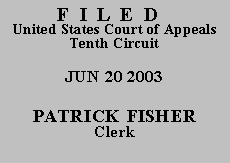

| UNITED STATES OF AMERICA,
Plaintiff-Appellee, v. WILLIE VINCENT MYERS,(*) Defendant-Appellant. |
|
Defendant Willie Vincent Myers pled guilty to possession of a firearm by a convicted felon, in violation of 18 U.S.C. § 922(g)(1), and was sentenced to a term of imprisonment of 78 months. Myers appeals his sentence. We exercise jurisdiction pursuant to 28 U.S.C. § 1291 and 18 U.S.C. § 3742(a) and affirm.
Myers' counsel has filed a brief pursuant to Anders v. California, 386 U.S. 738, 744 (1967) (permitting counsel who considers an appeal to be wholly frivolous to advise the court of that fact, request permission to withdraw, and submit a brief referring to portions of the record that arguably support the appeal). Counsel has filed a motion to withdraw and, as required, has provided copies of the Anders brief and the motion to withdraw to Myers. Myers has not filed a response. Pursuant to our duty under Anders, we have conducted an independent review of the record and find no basis for reversing Myers' sentence.
We find no merit to Myers' assertion that the district court erred in enhancing his sentence pursuant to U.S.S.G. § 2K2.1(b)(5) for use of a firearm in connection with another felony. The court found that during an altercation in an automobile with his girlfriend on January 29, 2001, Myers fired a gun three or four times at his girlfriend's legs but she avoided injury by pushing away the gun. We have reviewed the sentencing transcript and conclude the district court's factual findings were not clearly erroneous. See United States v. Brown, 314 F.3d 1216, 1222 (10th Cir. 2003) (discussing standard of review for district court's factual findings and legal conclusions at sentencing). Further, because this conduct could have given rise to a felony conviction under Colorado state law, we conclude the court properly applied the § 2K2.1(b)(5) enhancement. See U.S.S.G. § 2K2.1, cmt. n.7 (defining "[f]elony offense" under subsection (b)(5) as "any offense (federal, state, or local) punishable by imprisonment for a term exceeding one year, whether or not a criminal charge was brought, or conviction obtained").
We also find no merit to Myers' assertion that the district court erred in enhancing his sentence pursuant to U.S.S.G. § 3C1.1 for obstruction of justice. It is uncontroverted that, following his arrest, Myers sent letters to two key witnesses. After reviewing the letters, the court found the intent of the letters was to ask the two witnesses "not to testify or to tell the truth." ROA, Vol. 4 at 78. The court also found that Myers broke one of the witness' car windows. We have reviewed the record and conclude the district court's factual findings are supported by the evidence and that the court properly applied the enhancement for obstruction of justice. See U.S.S.G. § 3C1.1, cmt. n.4 (listing threatening of witness as example of obstructive conduct); see also United States v. Heckard, 238 F.3d 1222, 1232-33 (10th Cir. 2001) (affirming application of § 3C1.1 where defendant unlawfully attempted to influence a witness).
AFFIRMED. Counsel's motion to withdraw is GRANTED.
Entered for the Court
Mary Beck Briscoe
Circuit Judge
*. The record on appeal indicates the correct spelling of defendant's name is "Myers." ROA, Vol. 4 at 66.
**.This order is not binding precedent, except under the doctrines of law of the case, res judicata, and collateral estoppel. The court generally disfavors the citation of orders and judgments; nevertheless, an order and judgment may be cited under the terms and conditions of 10th Cir. R. 36.3.